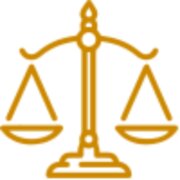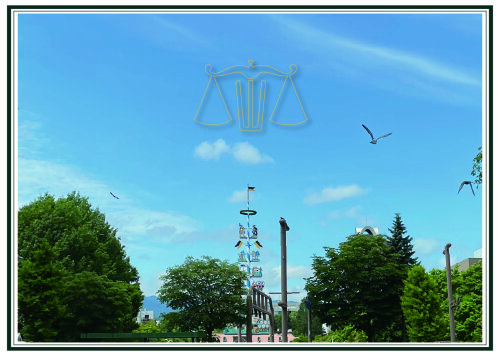Best Assault & Battery Lawyers in Japan
Share your needs with us, get contacted by law firms.
Free. Takes 2 min.
Or refine your search by selecting a city:
List of the best lawyers in Japan
About Assault & Battery Law in Japan
In Japan, the concepts of assault and battery fall under the umbrella of criminal offenses involving physical harm or intent to harm another person. Japan's Penal Code defines assault as an act that causes physical harm to another, while battery involves causing injury to the body of another individual. Japanese law takes these offenses seriously, and they can carry significant legal consequences, including fines and imprisonment. The severity of the punishment usually hinges on the gravity of the injuries inflicted and the circumstances surrounding the offense.
Why You May Need a Lawyer
There are various situations in which one might require legal assistance concerning assault and battery in Japan:
- If you are accused of assault or battery and need defense in a criminal case.
- If you are a victim seeking to understand your rights and want to pursue charges or compensation.
- If you require assistance in navigating the Japanese legal system, particularly if you are not fluent in Japanese or unfamiliar with local laws.
- To receive guidance during negotiations for an out-of-court settlement.
- If you desire to explore any civil remedies available in addition to criminal proceedings.
Local Laws Overview
Japan’s Penal Code outlines assault and battery laws with specific punishments depending on the situation:
- Assault without injury can result in detention or a fine.
- Battery causing injury typically involves harsher punishment, either in the form of imprisonment or more substantial fines.
- Aggravated assault involving weapons or leading to severe bodily harm may lead to more severe penalties.
- There is a statute of limitations which may limit the time within which charges can be raised.
- Self-defense is recognized; however, excessive use of force beyond what is necessary can nullify a self-defense claim.
Frequently Asked Questions
What constitutes assault under Japanese law?
In Japan, assault is defined as an intentional act that causes harm or attempts to cause harm to another individual without their consent. Physical contact is not necessarily required to be charged with assault.
How is battery different from assault in Japan?
Battery involves actual physical contact with the victim resulting in injury, differentiating it from assault where physical contact may not occur. Battery carries more severe penalties than assault.
What are the penalties for assault in Japan?
The penalties can include detention for up to 30 days or a fine up to 1 million yen, depending on the circumstances and severity of the incident.
Is self-defense a valid defense for assault charges?
Yes, self-defense is recognized in Japan. However, the response must be proportionate to the threat faced. Excessive force can negate the self-defense claim.
Can I be prosecuted if I accidentally injure someone?
If the act was genuinely accidental and there was no intent to harm, you may not be criminally liable. However, civil liability may still arise.
How long after an incident can someone press charges for assault?
Assault charges must typically be filed within three years of the incident under the statute of limitations, though this can vary if injuries result or in more severe cases.
What should I do if I’m falsely accused of assault?
If you face false accusations, it is crucial to seek legal advice immediately to build your defense. Gathering evidence and witness testimony can be vital.
Can victims of assault seek compensation?
Yes, victims can pursue compensation for damages through the civil court system alongside or after criminal proceedings.
Can charges be dropped once filed?
In Japan, the prosecution has discretion regarding the continuation of a case. Charges can sometimes be dropped, especially if settled out of court, but they are not obligated to do so.
Do I need to attend court for assault and battery charges?
Typically, court attendance is required if charges proceed. Legal counsel can provide representation and explain exceptions if applicable.
Additional Resources
If you need more information or assistance, consider reaching out to these resources:
- Japan Legal Support Center (Houterasu)
- The Japanese Federation of Bar Associations
- Your local embassy or consulate for assistance in navigating the legal system in Japan
- Non-profit organizations offering support to crime victims
Next Steps
If you require legal assistance for an assault and battery issue in Japan, consider the following steps:
- Consult with a legal professional specializing in criminal law to understand your rights and options.
- If language is a barrier, seek help from services that provide legal aid in your preferred language.
- Gather any evidence or documentation related to the incident.
- Contact local authorities if you have been a victim of assault or battery to report the incident promptly.
- Consider reaching out to support organizations for advice and guidance through the process.
Lawzana helps you find the best lawyers and law firms in Japan through a curated and pre-screened list of qualified legal professionals. Our platform offers rankings and detailed profiles of attorneys and law firms, allowing you to compare based on practice areas, including Assault & Battery, experience, and client feedback.
Each profile includes a description of the firm's areas of practice, client reviews, team members and partners, year of establishment, spoken languages, office locations, contact information, social media presence, and any published articles or resources. Most firms on our platform speak English and are experienced in both local and international legal matters.
Get a quote from top-rated law firms in Japan — quickly, securely, and without unnecessary hassle.
Disclaimer:
The information provided on this page is for general informational purposes only and does not constitute legal advice. While we strive to ensure the accuracy and relevance of the content, legal information may change over time, and interpretations of the law can vary. You should always consult with a qualified legal professional for advice specific to your situation.
We disclaim all liability for actions taken or not taken based on the content of this page. If you believe any information is incorrect or outdated, please contact us, and we will review and update it where appropriate.
Browse assault & battery law firms by city in Japan
Refine your search by selecting a city.












